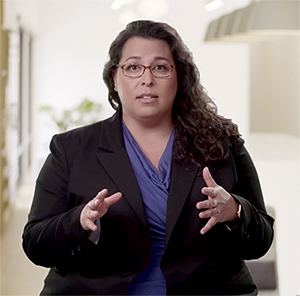Mental Health Awareness Month takes place every year during the month of May. This time is dedicated to spreading education, resources, and awareness about mental illnesses and the millions of Americans who struggle every day. This month also serves as an effort to destigmatize and open the conversation surrounding mental health.
According to the Mental Health Foundation:
- 1 in 5 adults in America experience mental illness
- Nearly 1 in 25 adults live with a serious mental illness
- 50% of chronic mental illnesses start before 14
- 75% of all chronic mental illnesses start by 24
- Just over 10 million adults have co-occurring mental health and addiction disorders
- Depression is the leading cause of disability worldwide and contributes to disease globally
- Suicide is the 10th leading cause of death in the United States. It accounts for the loss of more than 41,000 American lives each year, more than double the number of lives lost to homicide
- Nearly 60% of adults living with mental illnesses did not receive mental health services in the last year
Mental Health Awareness Month was first recognized in 1949 by Mental Health America (then known as the National Committee for Mental Hygiene and later the National Mental Health Association). Mental Health America was founded by Clifford Whittingham Beers in 1909. Beers was one of five children in a family who all battled mental illness. From his experience with his family, Beers discovered the malpractice, inhumane treatment and unfair judgment mental health patients had to deal with. After authoring “A Mind That Found Itself,” Beers received support from medical professionals and went on to start the National Committee for Mental Hygiene, an association dedicated to advocating for mental health and providing support for those struggling with their mental health.
Your mental health is just as important as your physical health. Anyone can be affected by mental illness. Remember to take time for yourself to care for your mental health and focus on what you need to feel better. There are many mental health organizations across the country that provide education, resources, support, contacts, and anything else someone struggling might need. Learn more about mental health resources below.
Resources
UMass provides employees with resources that can be accessed anytime, anywhere from your computer, tablet or smartphone. Visit UMass President's Office Mental Health Resources for more information on employee resources.
Recommended LinkedIn Learning Course: Realistic Strategies to Talk about Mental Health at Work
 Until recently, conversations surrounding mental health have been discouraged in the workplace. "Realistic Strategies to Talk about Mental Health at Work," a 40-minute LinkedIn Learning course explores several topics, including workplace mental health conversation barriers, communication skills, conflict resolution, and more.
Until recently, conversations surrounding mental health have been discouraged in the workplace. "Realistic Strategies to Talk about Mental Health at Work," a 40-minute LinkedIn Learning course explores several topics, including workplace mental health conversation barriers, communication skills, conflict resolution, and more.
First time accessing LinkedIn Learning? You can access LinkedIn Learning through the UITS Product Catalog using your umassp.edu credentials.
Remember
- Your mental health is just as important as your physical health.
- Mental health problems can affect anyone. Remember to be kind and provide support when others are struggling.
- Help destigmatize mental illness by talking about it. Don’t be afraid to talk about your experience with mental health. The more you talk about it, the more normalized it becomes. Destigmatizing mental illness helps create further awareness and helps support research and treatment options.
- Be kind to your mind!
Communication developed by Jacob Sturtz.
